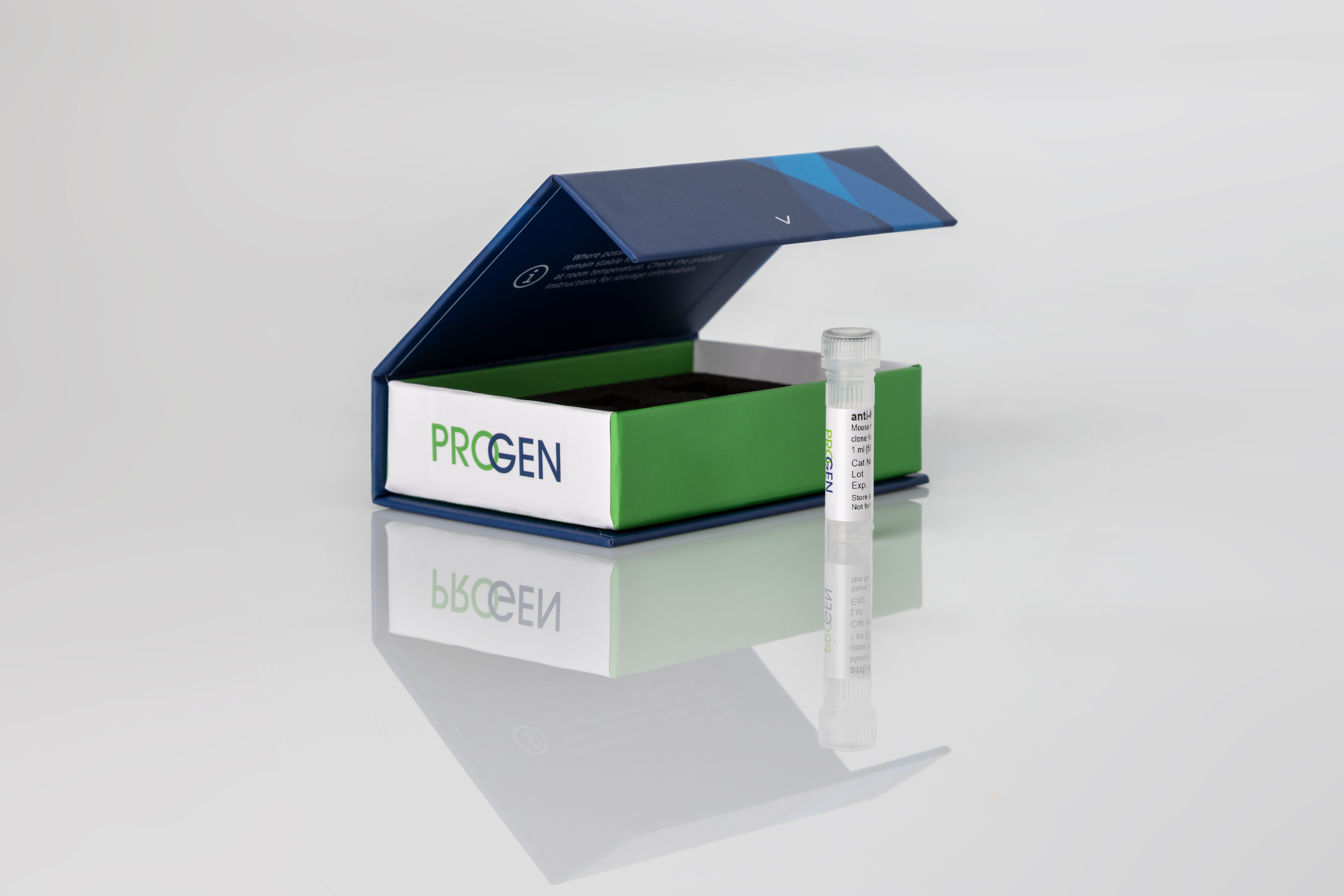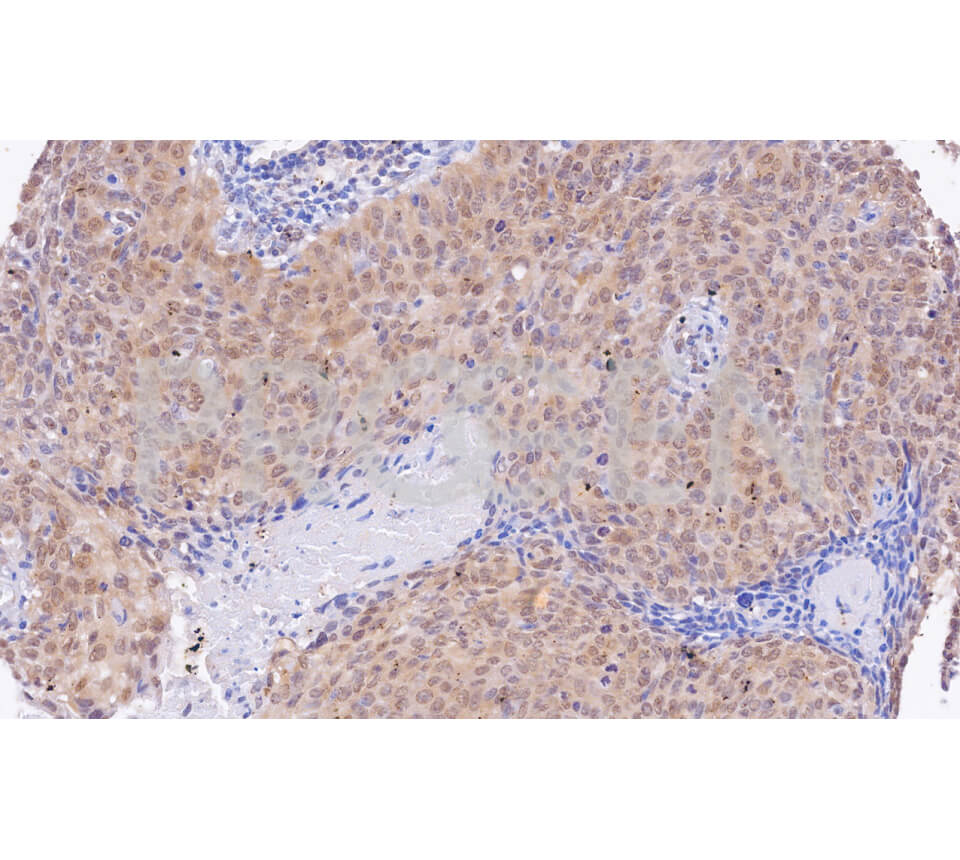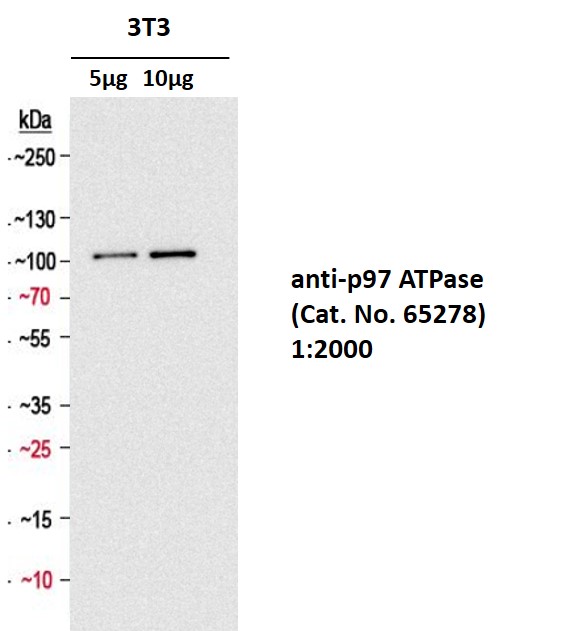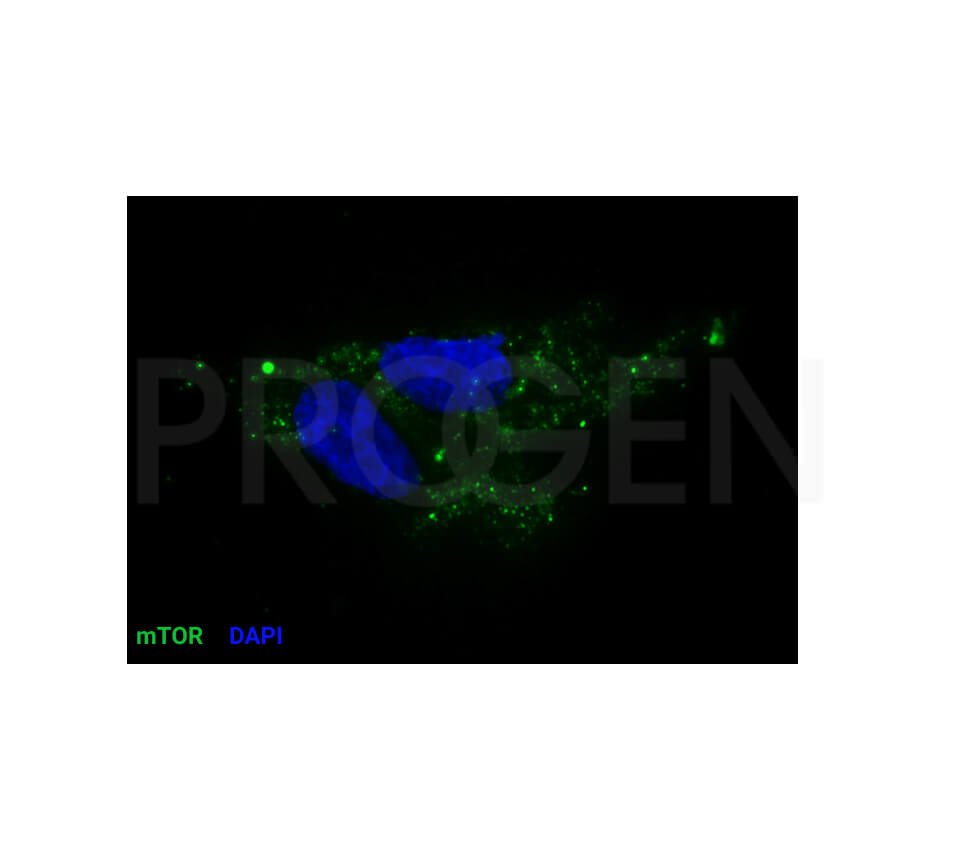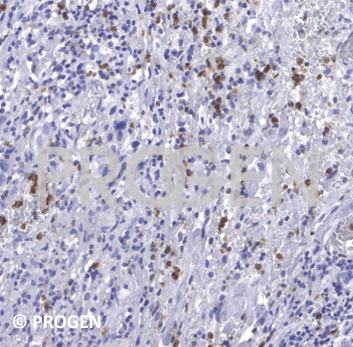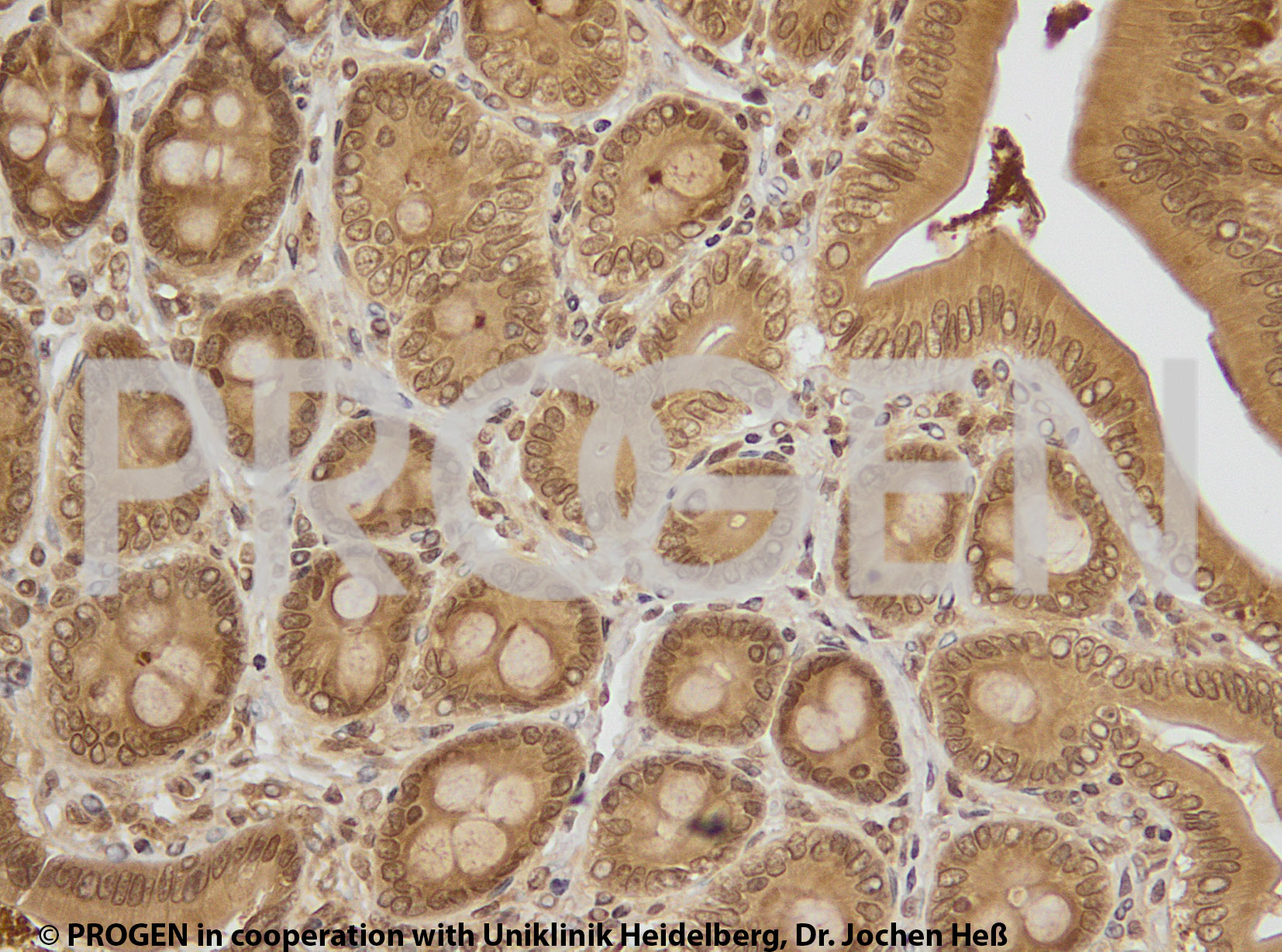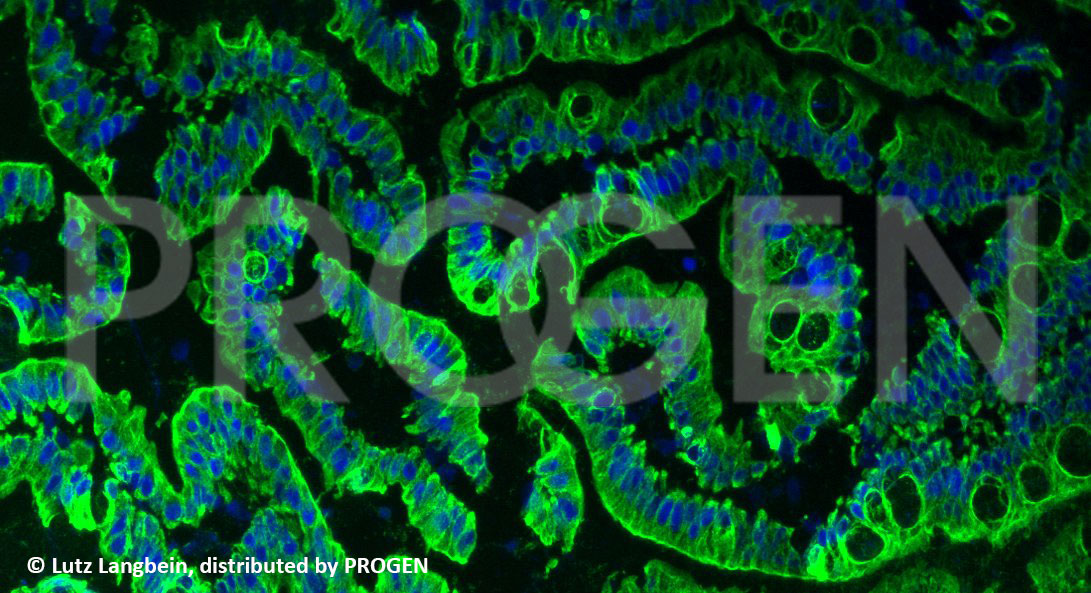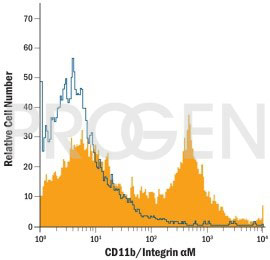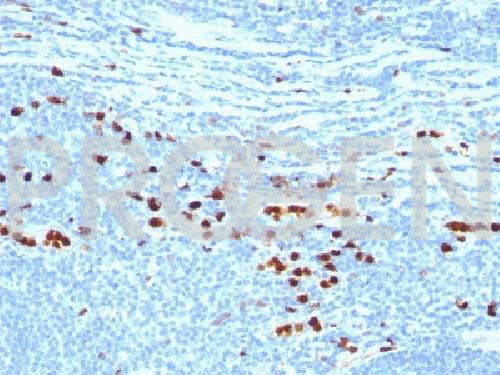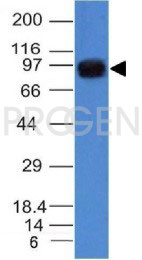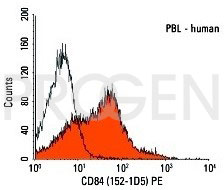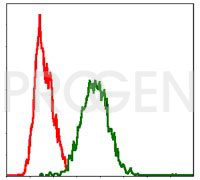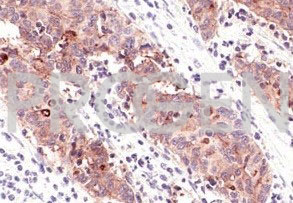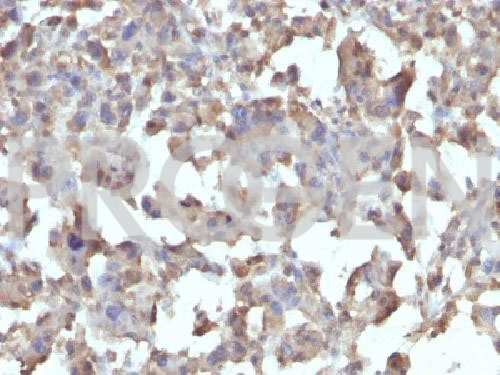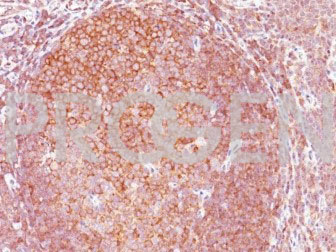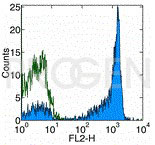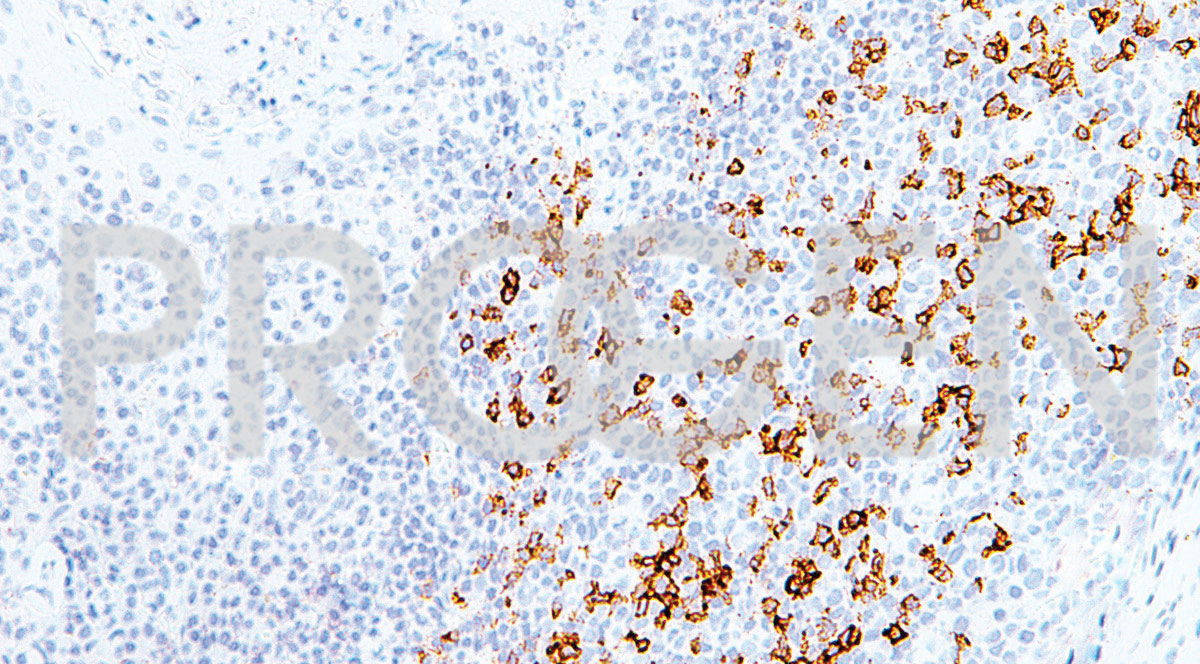anti-p100 Nuclear Coactivator Protein guinea pig polyclonal, serum
- Guinea pig polyclonal
- Suitable for IHC and WB
- Reacts with bovine, drosophila, human, mouse and rat
Product description
| Quantity | 100 µl |
|---|---|
| Antibody Type | Polyclonal |
| Host | Guinea pig |
| Conjugate | Unconjugated |
| Application | IHC, WB |
| Purification | Stabilized antiserum |
| Reactivity | Bovine, Drosophila, Human, Mouse, Rat |
| Storage | Short term at 2-8°C; long term storage in aliquots at -20°C; avoid freeze/thaw cycles |
| Intended use | Research use only |
| Immunogen | Synthetic duplicated C-terminus of human p100 protein conjugated to KLH |
| Formulation | Contains 0.09% sodium azide and 0.5% BSA |
| Note | Centrifuge prior to opening |
Applications
| Tested applications | Tested dilutions |
|---|---|
| Immunohistochemistry (IHC) - frozen | 1:100-1:200 |
| Western Blot (WB) | 1:2,000 |
Background
p100 is a ubiquitously expressed protein highly conserved during evolution, enhancing e.g. transciptional activity of EBNA2 of EBV, bridging STAT6 with the basal transcription machinery, also described as a part of the RNA polymerase II holoenzyme (Yang et al.). The antiserum localized p100 also in the ER and lipid droplets of milk secreting cells. In addition to the nuclear localization the protein was also detected in cytosolic fractions from lactating mammary gland, in storage lipid droplets from adipocytes and in ER from liver (Keenan et al.).
Reactivity on cultured cell lines: BMGE (bovine mammary epithelial cells).
Yang J, Aittomäki S, Pesu M, Carter K, Saarinen J, Kalkkinnen N, Kieff E, Silvennoinen O: Identification of p100 as a coactivator for STAT6 that bridges STAT6 with RNA polymerase II. EMBO J 21, 4950-4958 (2002).
Keenan TW, Winter S, Rackwitz HR, Heid HW: Nuclear coactivator protein p100 is present in endoplasmic reticulum and lipid droplets of milk secreting cells. Biochim Biophys Acta 1523, 84-90 (2000).
References/Publications (1)
Downloads
Q & A's
Customer Reviews
Login
FAQs
- PVDF membranes show better results than nitrocellulose (higher capacity, allows for more stringent washing conditions in case of background problems).
- Use freshly prepared blocking solution (e.g. 5% nonfat dry milk, 0.05% Tween 20), block for at least 1 h at room temperature.
- Use the antibody in a higher dilution, but prolong incubation time and exposure time.
- Always use a fresh aliquot of the antibody.
- Do not repeatedly freeze the antibody (eventually centrifuge shortly after thawing to remove cryo-precipitates).
- Include an additional washing step.
You might also try more stringent wash conditions, e.g. add 0.5 M NaCl to the wash buffer. - Always use a fresh aliquot of secondary antibody.
- In case you use ECL most the guinea pig antibody should be diluted further in order to get rid of the background.
The concentration of purified antibodies is mentioned on the datasheet.
For prediluted antibodies the concentration may vary from lot to lot. The concentration of these antibodies is not mentioned on the datasheet and can be requested at support@progen.com.
The supernatant format contains FCS proteins from cell culture medium supplemented with FCS.
The serum antibodies contain other proteins present in serum.
Most of our liquid antibodies and reconstituted lyophilized antibodies may be stored for short term storage (up to 3 month) at 2-8°C. For long term storage we recommend to store the antibody at -20°C in aliquots. Please avoid freeze and thaw cycles.
Most of our conjugated antibodies should be stored at 2-8°C.
The individual storage conditions are mentioned on the datasheet.
- Methanol/ acetone fixation: Immerse slide in precooled (-20°C) methanol for 5 min, immerse in precooled (-20°C) acetone for 30-60 sec, let specimen air dry before antibody incubation.
- Methanol/ acetone fixation plus detergent permeabilization: After methanol/ acetone fixation and air-drying dip slide either in a solution containing 0.1-0.2% Triton X-100 in PBS or in 0.1% saponin in PBS for 1-5 min at room temperature (enhances accessibility of many cytoskeletal antigens).
- Air-drying of the section.
- Block with the serum of the species in which the secondary antibody was raised for 30 min.
- Incubation with 1st antibody 1 h at RT in moist chamber.
- Wash 3x with PBS.
- Incubation with appropriate fluorescent secondary antibody, 30-60 min at RT.
- Wash 3x with PBS.
- Immerse shortly into ethanol.
- Let air dry.
- Cover with mounting medium.
In guinea pigs the antibody concentration in serum varies from 10 to 20 mg/ml; specific antibodies represent normally about 0.1-1% of total IgG. Total protein concentration varies from 40 to 65 mg/ml, with the main constituent (about 60%) being albumin.

